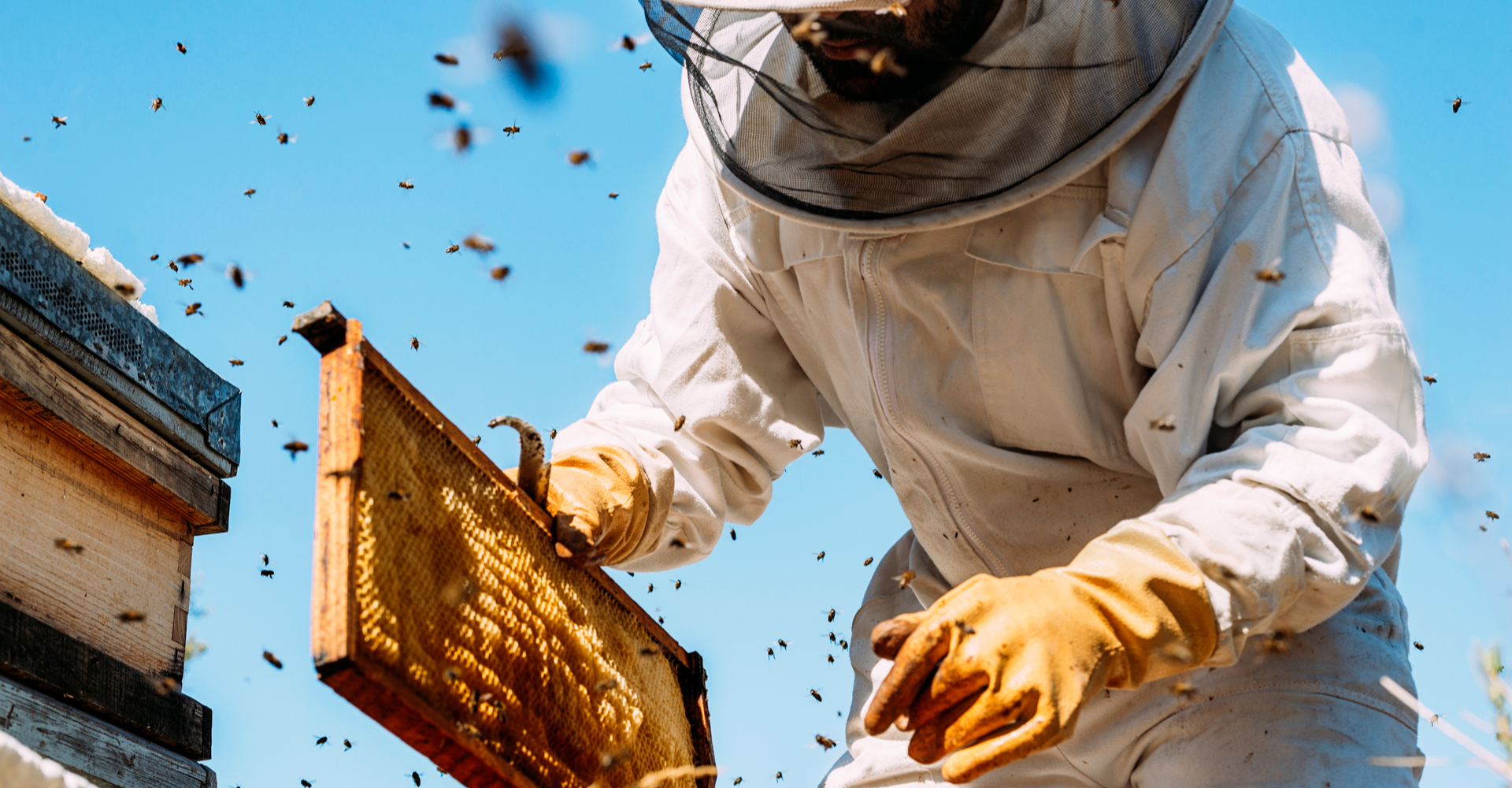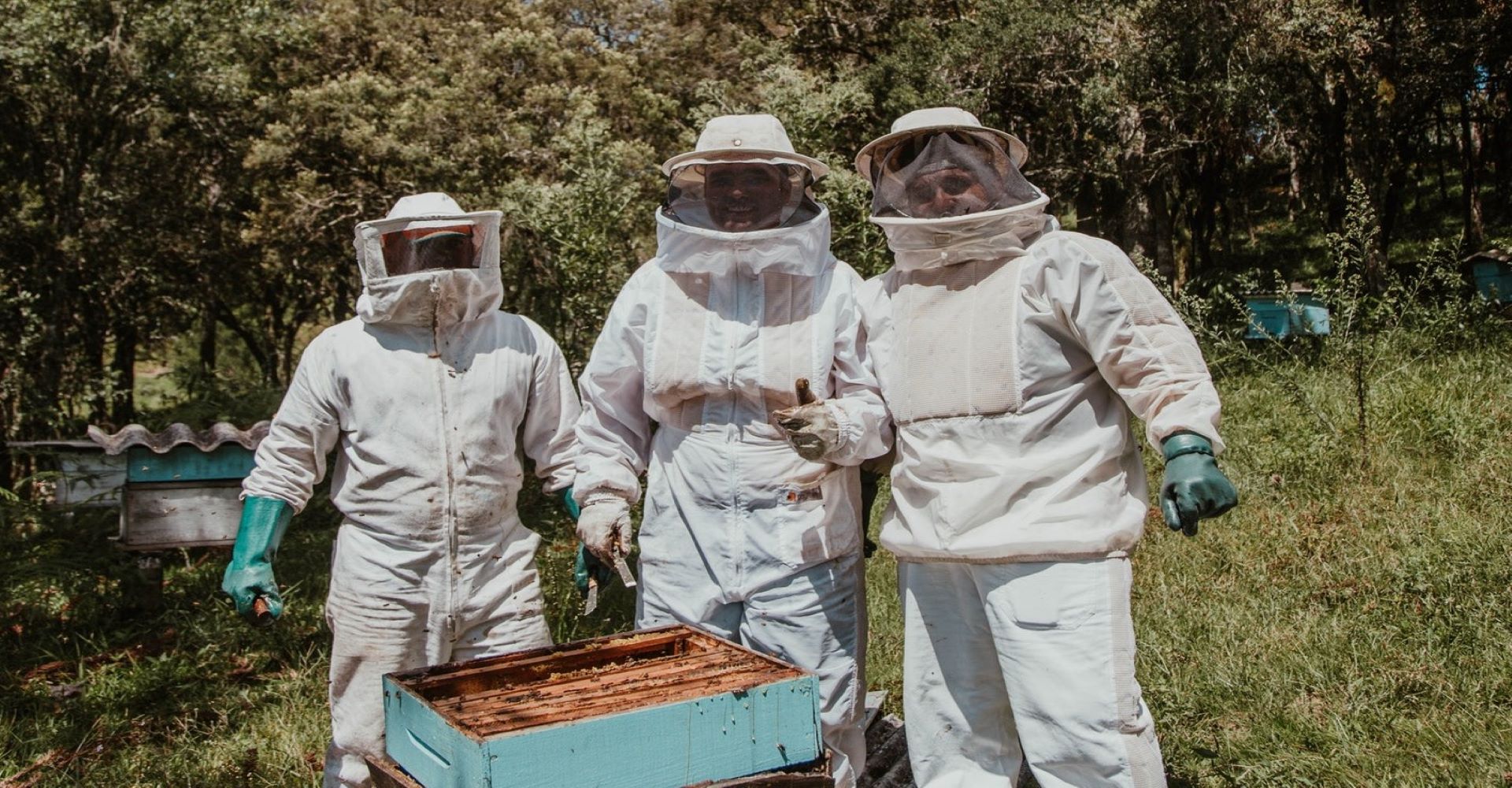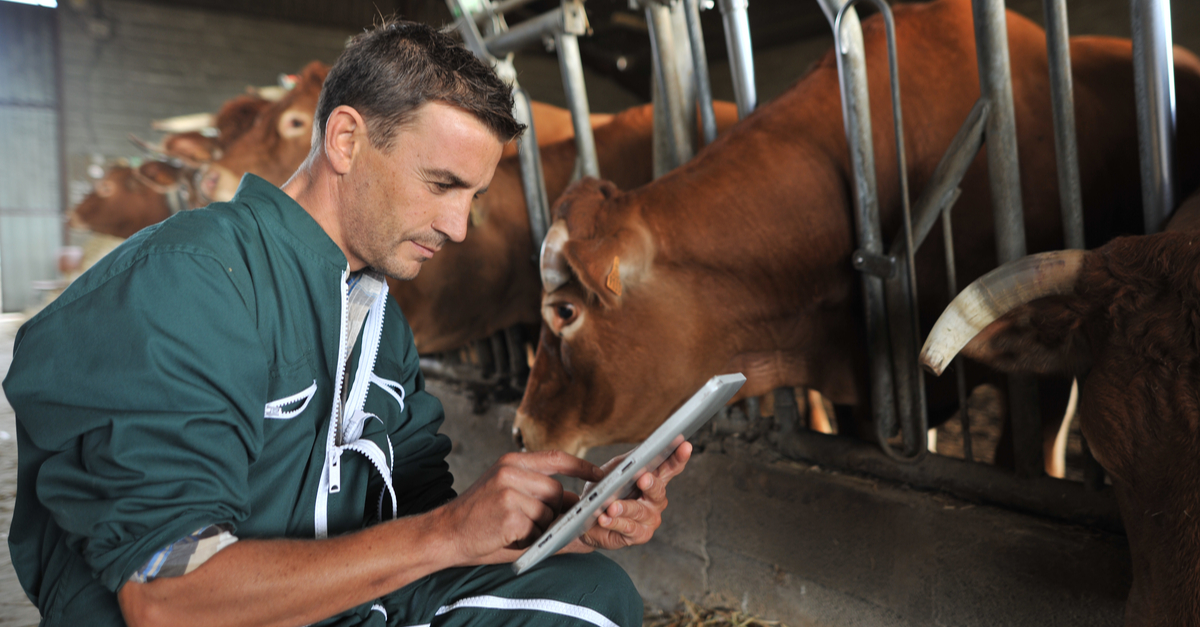The Role of Veterinarians in Helping Honeybees: 3 Things You Can Do
We'd be in real trouble without pollinators, and it's veterinary medicine's job to take care of them. How can veterinary professionals do their...
3 min read
Viticus Group : October 10, 2019 11:00:00 AM PDT

Beekeeping has been around for a while, but bees have successfully caught the attention of the veterinary community within the last two years.
Around two years ago, the FDA announced that honeybees were officially considered food animals. Dr. Jeffrey Applegate and his colleagues decided that veterinary medicine was going to have to respond with increased awareness and education for veterinarians about honeybees.
In this week’s Quick Cup of Knowledge, Dr. Jeffrey Applegate explains the need for the veterinary community to be more active in helping beekeepers. To help veterinarians do this, he instructs a beekeeping lab and describes why this new movement is so exciting.
What is the veterinarian’s role in helping bees?
Bees are extremely important to our agriculture and the natural world. Their pollination of crops makes them one of the most valuable key contributors to ecosystem functions.
The veterinarian’s role in helping beekeepers maintain the health of their bees, according to Dr. Applegate, includes managing a hive safely, protecting the food supply, and keeping medically important antibiotics out of honey (similar to working with other food animals like cattle and chickens).
Backyard hives are becoming more common as honeybees rise in public attention. Bee Downtown, a self-proclaimed “beesness” based in Atlanta, maintains urban hives located on the roofs of downtown buildings and shares the honey. They also provide public education about the benefit of bees and preserving hives.
As more people are motivated to become beekeepers in whatever capacity, they will need support from knowledgeable veterinarians to keep those bees healthy.
What does the honeybee lab consist of?
Veterinarians need to know, first, the safety measures and equipment involved in working with a hive. They need to know the components of a hive and the verbiage used. The first part of the lab is learning these basics.
Then, you suit up and get in there! Feeling comfortable in a live hive situation takes practice, so this lab gets you started. Dr. Applegate says that you start to get used to working with bees and getting to know them when you’re working with a minimum of 10 hives on a regular basis. Then you can start diagnosing disease and treating if necessary. Moving forward, veterinarians can be involved in getting rid of pests in a hive, too.
You get to know your bees just like you would other animals?
Believe it or not, Dr. Applegate says that with regular exposure, you get to know the personality of your hive as they get more comfortable with you. The personality of the hive depends on the queen, whether they’re cooperative and peaceful or more protective.
Just as you become familiar with cows, chickens, or any other food animal, you learn how to handle your bees based on the personality of the hive and past behavior.
Different types of bees vary in aggressiveness and proficiency at honey making. The most common groups are Italian bees, Spanish bees, and Africanized bees. Dr. Applegate puts it this way: if Italian bees are cows, then Spanish bees are fighting bulls, and Africanized bees are a pack of lions!
Colloquially known as the “killer bee,” Africanized bees are the best at making honey, but they’re probably not the ones Bee Downtown is putting on city building rooftops.
Do you get stung?
This is the question you’ve had in the back of your mind since the start, isn’t it? Yes, you’ll probably get stung. Dr. Applegate says to expect to be stung at some point while working with bees. You get used to it.
Some master beekeepers can walk into their hive without any protective gear and work with their bees with a Zen-like touch. You may have those aspirations for your own hive someday, but as a veterinarian, you have to pay the same price you do getting bit and scratched while working with difficult clients at your regular practice.
While veterinarians are always busy bees, many have taken the time to learn about how to care for bees and how to support beekeepers in their important work. The future is exciting!
Stay in the Know!
This bee lab described by Dr. Applegate was given at the 91nd Annual Conference this year. Check out similar educational sessions and more at the next Annual Conference in 2020!
If you’re looking to further the oncology skills you already have, WVC’s Advanced Surgical Oncology Course is worth checking out!
Click the link to subscribe to our YouTube channel or check out our WVC Resource Library full of great podcasts, videos, and digital downloads!
Disclaimer
Content may contain advertising and sponsorships. Advertisers and sponsors are responsible for ensuring that material submitted for inclusion is accurate and complies with applicable laws. We are not responsible for the illegality or any error, inaccuracy or problem in the advertiser’s or sponsor’s materials.
Advertising and sponsorship material and/or opinions are not are not a reflection on Viticus Group.

We'd be in real trouble without pollinators, and it's veterinary medicine's job to take care of them. How can veterinary professionals do their...

2 min read
When it comes to beef production, Beef Quality Assurance (BQA) is the trusted source of guidance for animal welfare as well as providing the...

We all know there’s a dark side to social media, but maybe we don’t realize the extent of the damage and hurt that is going on in the veterinary...